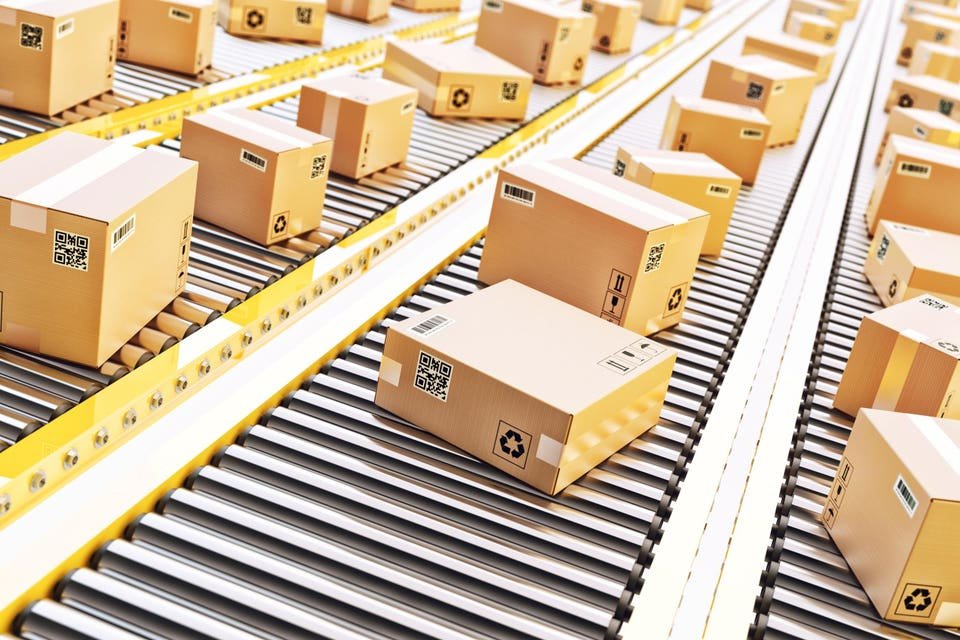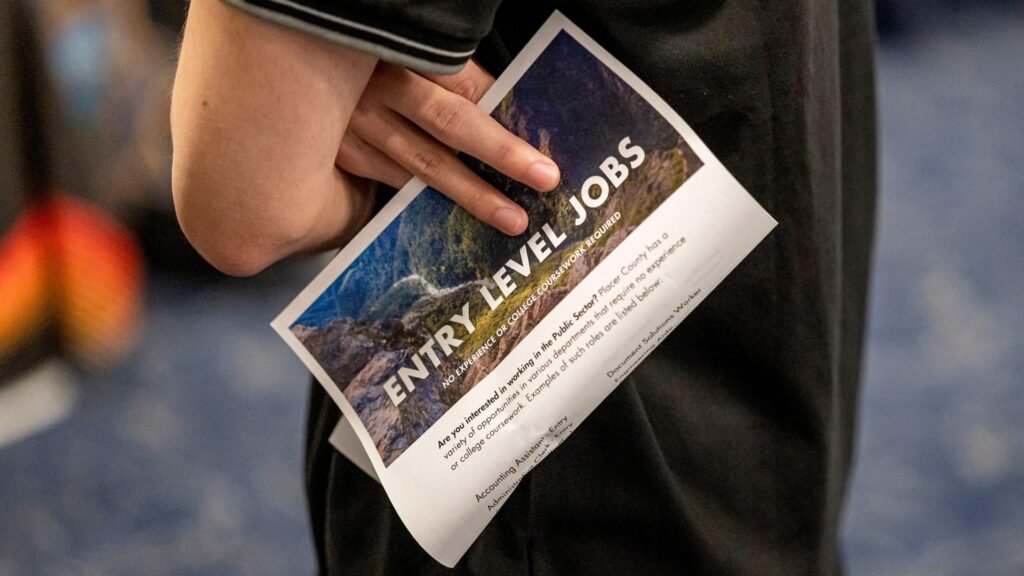
While the primary target of the decision to end the de minimis tariffs exemption may have been the millions of packages of low-priced goods Chinese companies like Shein and Temu were sending directly to U.S. consumers, the biggest impact is expected to hit U.S. small businesses.
An executive order by President Trump took effect today, making it harder, and more costly, for consumers and small businesses to purchase goods directly from foreign suppliers.
Consumers have other ways to find low cost goods, and ecommerce giants like Shein and Temu have the scale to work around tariff impacts, but small business that rely on international goods, either to sell in their shops, or to operate their businesses, have fewer alternatives.
Marketplace sellers impacted
Marketplaces such as Etsy, eBay, Poshmark, and Faire, that serve millions of small business owners that buy and sell goods internationally are expected to see immediate impacts.
Etsy stock today is down almost 20% from mid-August, and eBay stock is down roughly 10%.
Customs Fees Could Double Small Business Costs
“The de minimis suspension ending is yet another change that has forced every American small business owner to become an accidental trade policy expert overnight. These are people who were running profitable operations based on low-cost supply orders that previously slipped through duty free, and now they’re staring at customs fees that can double their costs,” Jacob Bennett, CEO and Co-founder of small business banking platform CruxAnalytics, said.
The de minimis change is the latest in a series of tariff announcements that have created a volatile situation for small business owners, Bennett said in an interview.
“There’s this whiplash effect that many, many small business owners are now feeling which is leading to growing uncertainty and concern about how they’re going to continue running their business,” he said.
Because most small business operate on very small margins, they are more likely to place orders for goods that are under the $800 limit, Bennett said, and the end of the de minimis rule will result in big increases in their expenses.
Small Businesses Already Feeling Pressured
This comes at a time when small business owners already were feeling pressured, Bennett said. CruxAnalytics did research a few weeks ago, looking at small business concerns in the U.S. “What we found was a dramatic spike in search sentiment for businesses looking for emergency loans, looking for advice on how to wind down a business,” he said.
“Business owners are clearly demonstrating that they’re concerned and they don’t know what the future holds,” he said.
International packages that fell under the de minimis rule have surged in recent years, in large part driven by the growth of U.S. by companies that ship small purchases directly to consumers.
According to White House statistics, 2015 and 2024, de minimis shipments entering the U.S. increased from 134 million to over 1.36 billion shipments, with the U.S. Customs and Border Protection office handling over 4 million such shipments each day.
Guides For Navigating New Tariffs
Faire, the online wholesale marketplace that helps mom and pop stores discover new products and buy from creators and brands around the world, has responded to the ongoing tariff changes this year by adding a number of new tools for its retail customers, including a filter that lets customers quickly identify over 10 million products that can be shipped without import duties.
Etsy yesterday updated its seller handbook with a guide for navigating the new tariffs on small orders, with a list of recommended carriers that can provide Delivered Duty Paid shipping. Etsy is also providing a tool that helps sellers calculate their costs including the new tariffs, and reevaluate their pricing strategy.
Retail, /retail, Business, /business, business, standard While the primary target of the decision to end the de minimis tariffs exemption may have been the millions of packages of low-priced goods Chinese companies like Shein and Temu were sending directly to U.S. consumers, the biggest impact is expected to hit U.S. small businesses.
An executive order by President Trump took effect today, making it harder, and more costly, for consumers and small businesses to purchase goods directly from foreign suppliers.
Consumers have other ways to find low cost goods, and ecommerce giants like Shein and Temu have the scale to work around tariff impacts, but small business that rely on international goods, either to sell in their shops, or to operate their businesses, have fewer alternatives.
Marketplace sellers impacted
Marketplaces such as Etsy, eBay, Poshmark, and Faire, that serve millions of small business owners that buy and sell goods internationally are expected to see immediate impacts.
Etsy stock today is down almost 20% from mid-August, and eBay stock is down roughly 10%.
Customs Fees Could Double Small Business Costs
“The de minimis suspension ending is yet another change that has forced every American small business owner to become an accidental trade policy expert overnight. These are people who were running profitable operations based on low-cost supply orders that previously slipped through duty free, and now they’re staring at customs fees that can double their costs,” Jacob Bennett, CEO and Co-founder of small business banking platform CruxAnalytics, said.
The de minimis change is the latest in a series of tariff announcements that have created a volatile situation for small business owners, Bennett said in an interview.
“There’s this whiplash effect that many, many small business owners are now feeling which is leading to growing uncertainty and concern about how they’re going to continue running their business,” he said.
Because most small business operate on very small margins, they are more likely to place orders for goods that are under the $800 limit, Bennett said, and the end of the de minimis rule will result in big increases in their expenses.
Small Businesses Already Feeling Pressured
This comes at a time when small business owners already were feeling pressured, Bennett said. CruxAnalytics did research a few weeks ago, looking at small business concerns in the U.S. “What we found was a dramatic spike in search sentiment for businesses looking for emergency loans, looking for advice on how to wind down a business,” he said.
“Business owners are clearly demonstrating that they’re concerned and they don’t know what the future holds,” he said.
International packages that fell under the de minimis rule have surged in recent years, in large part driven by the growth of U.S. by companies that ship small purchases directly to consumers.
According to White House statistics, 2015 and 2024, de minimis shipments entering the U.S. increased from 134 million to over 1.36 billion shipments, with the U.S. Customs and Border Protection office handling over 4 million such shipments each day.
Guides For Navigating New Tariffs
Faire, the online wholesale marketplace that helps mom and pop stores discover new products and buy from creators and brands around the world, has responded to the ongoing tariff changes this year by adding a number of new tools for its retail customers, including a filter that lets customers quickly identify over 10 million products that can be shipped without import duties.
Etsy yesterday updated its seller handbook with a guide for navigating the new tariffs on small orders, with a list of recommended carriers that can provide Delivered Duty Paid shipping. Etsy is also providing a tool that helps sellers calculate their costs including the new tariffs, and reevaluate their pricing strategy.
Adblock test (Why?)
Forbes – Business



